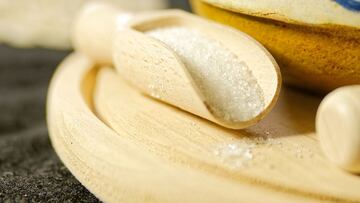The WHO advises against taking saccharin and stevia
The WHO has warned that artificial sweeteners can be harmful to health in the long term, do not help control weight and lack nutritional value.

The World Health Organization has issued a new warning. This time, related to the consumption of artificial or non-sugar sweeteners (NSS). As specified by the United Nations body, artificial sweeteners such as saccharin or stevia can be harmful to health in the long term. And, if they are used for a long time, they can cause an increased risk of cardiovascular diseases, type 2 diabetes, as well as mortality in adults.
That is why it has recommended to stop consuming them. The international health organization has also pointed out that replacing sugar with this type of product does not contribute to weight control either. For this reason, what they urge people to do is, directly reduce the intake of free sugars from an early age and eat foods that have natural sugar, such as fruits.
“Replacing free sugars with non-sugar sweeteners does not help with long-term weight control. People should consider other ways to reduce their free sugars intake, such as eating foods with naturally occurring sugars, like fruit, or unsweetened foods and beverages,” says the Director of Nutrition and Food Safety of the WHO, Francesco Branca.
What sweeteners does the WHO recommend not to take?
- Aspartame
- Cyclamates
- Saccharin
- Stevia and derivatives
- Acesulfame K
- Advantame
- Neotame
- Sucralose
They lack nutritional value
Another of the points that the WHO has found against sweeteners is that they lack nutritional value. “[Non-sugar sweeteners] are not essential dietary factors and have no nutritional value,” she specified. For this reason, she has insisted that “people should reduce the sweetness of the diet altogether, starting early in life, to improve their health,” she added.
This recommendation, in any case, is addressed to the whole of society, with the exception of those who suffer from pre-existing diabetes. And refers to all synthetic and natural or modified non-nutritive sweeteners that are not classified as sugars and are found in foods and beverages. As well as those that are put up for sale independently.
Personal hygiene products are left out
The WHO, in any case, has clarified that products intended for other types of consumption than food and contain these sweeteners are excluded from this recommendation. This is the case with some medicines, toothpastes or even some skin creams. And the same goes for low-calorie sugars or sugar alcohols, since they are derivatives of sugar and do contain calories.






